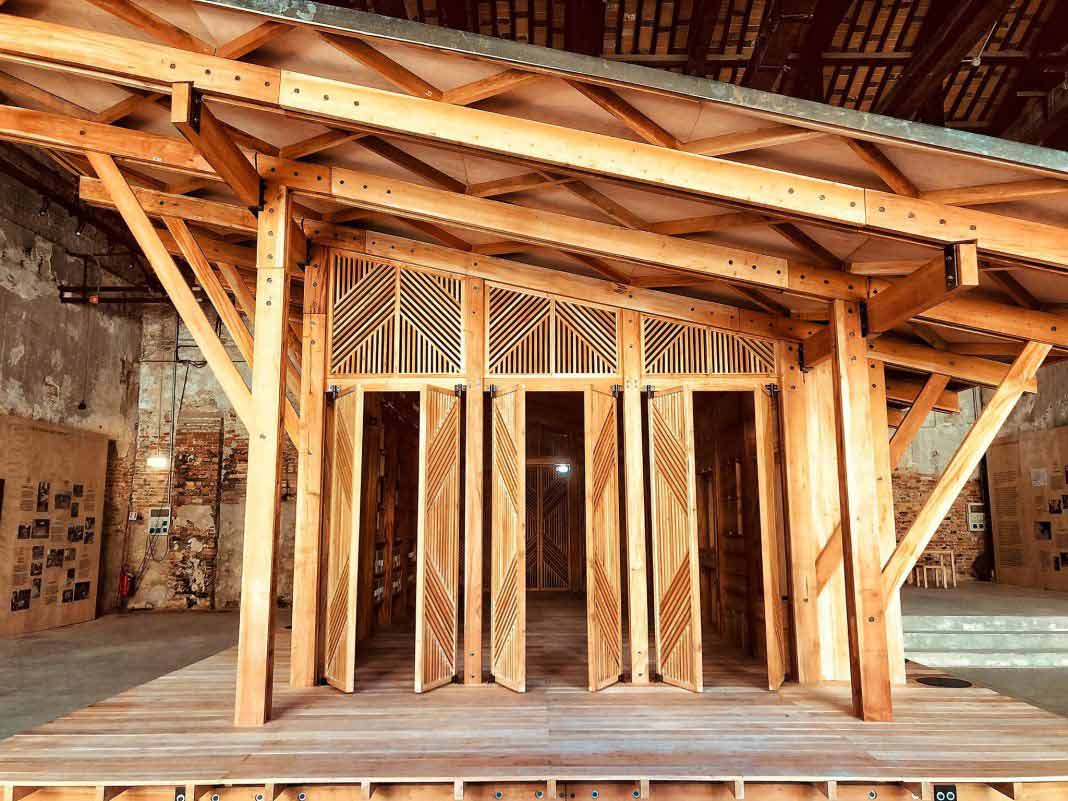The victory was made possible by architects, as well as a farming community in Bulacan.
Bayanihan, the Filipino tradition of mutual support within a community, has proven that if we come together, anything is possible—even a win at the prestigious Venice Architecture Biennale.
READ ALSO: Fashion Freedom: Meet The All-Filipino Team Of The ‘Indigenous Futurism’ Vogue Italia Spread
This is exactly what Filipino architect Sudarshan V. Khadka Jr. and Norwegian architect Alexander Eriksson Furunes—along with Framework Collaborative, which consists of members from the Gawad Kalinga Enchanted Farm community in Angat, Bulacan— achieved at the recently concluded international exhibition.
Besting 60 other countries, the team’s curated Philippine pavilion called “Structures of Mutual Support” scored the Special Mention as National Participation. The award is in recognition of the pavilion’s reflection of an “exemplary community project that creates a rich archive and experience of collaborative construction practices.”
The said project began in 2019 as a response to a need for a structure that’s beneficial for the village. Khadka and Furunes then led workshops for volunteer residents to make it happen—together as a community.

“It’s all to derive a common language to build something they all want: a library within the village,” a Philippine Pavilion press release reads.
Through the workshops, residents were taught to evaluate space and building proportions to help them understand the architectural process more. It eventually led to their active involvement in the project, physically inspecting the project site and applying the proposed grids in its actual location, size, and environment. It also allowed collective revisions in placement and location plans.
The result was a bright and spacious wooden library, which “explores how bayanihan can shape architecture anew by transforming the process from merely building to fulfilling a community’s dream by involving its people from planning, designing, and constructing a structure that holds their shared needs, desires, and values.”
A project also done in collaboration with the National Commission for Culture and the Arts (NCCA), the Department of Foreign Affairs (DFA), and the Office of Deputy Speaker and Congresswoman Loren Legarda, the win marks the first time the country has been recognized in the biennial showcase since joining in 1964. It took 51 years for the country to participate again and another three appearances to snag the special award.
“This is good news considering the circumstances we are in and the many hurdles we had to overcome,” Legarda writes in an Instagram post, referring to the one-year postponement of the Venice Biennale. “This recognition is another opportunity for us Filipinos to tell the world that our bayanihan and our strong sense of community can be solutions to the world’s most pressing issues.”
Banner Photo from philartsvenicebiennale.org





